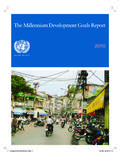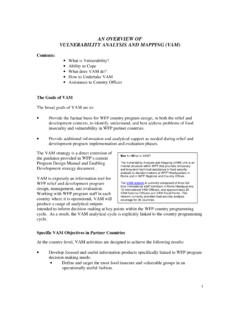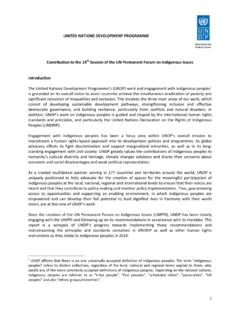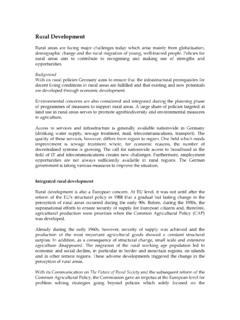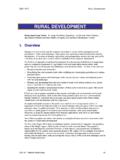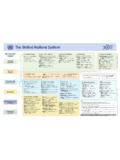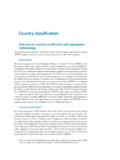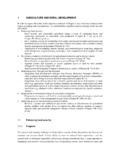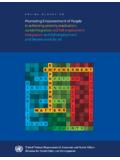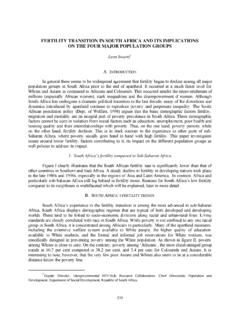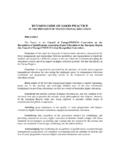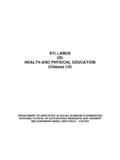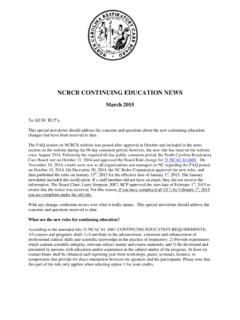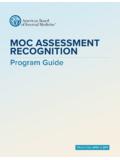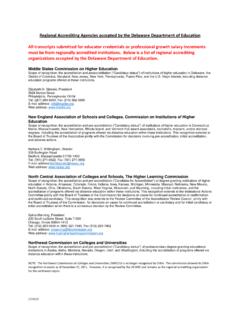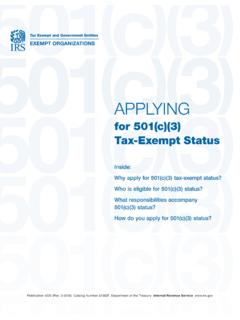Transcription of Education and skills for inclusive and sustainable ...
1 Education and skills for inclusive and sustainable development beyond 2015 Thematic Think Piece UNESCO* The views expressed in this paper are those of the signing agencies and do not necessarily reflect the views of the United Nations. May 2012 *With valuable contributions from DESA, ITU and UNITAR 2 Following on the outcome of the 2010 High-level Plenary Meeting of the General Assembly on the Millennium Development Goals, the United Nations Secretary-General established the UN System Task Team in September 2011 to support UN system-wide preparations for the post-2015 UN development agenda, in consultation with all stakeholders. The Task Team is led by the Department of Economic and Social Affairs and the United Nations Development Programme and brings together senior experts from over 50 UN entities and international organizations to provide system-wide support to the post-2015 consultation process, including analytical input, expertise and outreach.
2 3 Education and skills for inclusive and sustainable development beyond 2015 1. Enabling and driving inclusive and sustainable development Education , or the transmission, acquisition, creation and adaptation of information, knowledge, skills and values, is a key lever of sustainable development. This is based on a vision of inclusive societies in which all citizens have equitable opportunities to access effective and relevant learning throughout life delivered through multiple formal, non-formal and informal settings. As such, Education is essential to individuals development as it is to the development of their families, of the local and national communities to which they belong, and to the world at large. As a fundamental human right enshrined in a number of international normative frameworks,1 and built into most national legislation,2 the right to Education is to be seen as an enabling right for the realization of other economic, social and cultural rights, as well as a catalyst for positive societal change,3 social justice and peace.
3 There is an important body of development literature that has long documented the positive impact of basic Education on various facets of social and economic It is well-established that Education is an important catalyst for achieving all development goals. It has been recognized that, within the MDG framework, there is an interconnectedness of all development goals with key inter-linkages between Education , health, poverty reduction, and gender equality, where improvement in one area has a positive effect on the others .5 Indeed, in the same way that Education has positive effects on health, poverty reduction and elimination of hunger, as well as on gender equality, each, in 1 Foremost among these international normative frameworks are the Universal Declaration of Human Rights (art.)
4 26), the International Covenant on Economic, Social and Cultural Rights (art. 13), as well as the Convention on the Rights of the Child (art. 28). 2 An estimated 90 percent of all countries have legally-binding regulations requiring children to attend school (UNESCO Institute for Statistics, 2009). 3 See, for example, Dr ze and Sen (1995), India, Economic Development and Social Opportunity, Delhi: Oxford University Press 4 These have been extensively reviewed in successive issues of the UNESCO EFA Global Monitoring Reports 5 Report of the Secretary-General,, Implementing the Internationally Agreed Goals and Commitments in Regard to Educatio, E/2011 (New York, 2011) 4 turn, has a positive effect on Education . Higher levels of more relevant learning outcomes are thus both a condition for, as well as a result of, progress in other social sectors.
5 Beyond its well-established socio-economic role, Education also has a crucial socialization function through the shaping of personal and collective identities, the formation of responsible citizenship and the promotion of critical social participation, based on principles of respect for life, human dignity and cultural diversity. Promoting respect for diversity within a human rights-based approach can facilitate intercultural dialogue, help prevent conflict and protect the rights of marginalized groups, thus creating optimal conditions for achieving development goals. 2. Trends in international educational development If Education , learning and skills are to be seen as both enablers and drivers of inclusive and sustainable development, it is important to review the experience of Education within the framework of the international development agenda.
6 The more comprehensive international Education agenda is that of the six Education for All (EFA) goals adopted in the 2000 Dakar Framework for Action. The annual EFA Global Monitoring Report (GMR) has been monitoring progress towards these goals since 2002/03. What do these trends tell us that can help define future perspectives? While there has been rapid progress made in expanding access to formal basic Education worldwide, significant inequalities between countries persist, and national averages in many countries continue to mask striking inequalities in levels of educational attainment and outcomes. Traditional factors of marginalization in Education such as gender and urban/rural residence continue to combine with income, language, minority status, HIV and AIDS, age (particularly in the case of young adolescent girls), and disability, to create mutually reinforcing disadvantages , particularly so in low-income and conflict-affected 6 United Nations Educational, Scientific and Cultural Organization, EFA Global Monitoring Report (Paris, 2011) 5 With the growing recognition of the challenges of reaching the unreached , there is a need to better exploit more disaggregated data (such as household, health and labour survey data)
7 In order to better identify reasons for exclusion or disengagement from formal and non-formal learning opportunities, in view of putting in place more targeted strategies for the most vulnerable children, youth and adults. This has led some countries, in order to reach the hard to reach children, to include Education as an integral part of social protection programs. The expansion in access to basic formal Education has also resulted in a shift from a quantitative focus on access and participation in formal Education to a concern with qualitative aspects and the results of learning and their social expansion of access to primary Education has also resulted in the recognition of a growing demand for secondary and tertiary Education and increasing concern for vocational skills development, particularly in a context of growing youth unemployment.
8 Indeed, too many young people and adults are currently unable to develop the skills , knowledge and attitudes they need for today s rapidly changing technologies and world of work. This inadequate access to higher levels of learning is resulting in a knowledge divide that includes the e-literacy gap. The e-literacy gap is further pronounced between genders, where girls generally have a lower literacy rate. These trends have significant consequences in today s technology-driven world, where lack of ICT knowledge limits employment opportunities. In addition to insufficient quality of learning at basic Education , we also have witnessed little progress on other EFA goals like Early Child Care and Education , Life skills and Literacy. In the perspective of lifelong learning, it is evident that exclusion from the learning process starts early.
9 There is strong evidence that nutrition and cognitive stimulation in the early years of a child s life is critical in forming the ability to learn later in life. This is particular relevant with regard to developing skills like creativity, flexibility and problems solving, skills that are coming more in demand in the knowledge economy. In many countries too many children are learning far too little, and children leave school without having obtained fundamental learning skills . In this way many children and youth 6 are excluded because they do not acquire basic skills like literacy and numeracy which are critical for further learning. This has led to a stronger focus on the quality of early Education as a foundation for learning. Finally, there is a growing awareness of the pressures being placed on public financing of Education .
10 This has resulted in the need to seek more efficient use of these limited resources, ensure greater accountability in the investment of public resources for Education , and ways in which to supplement these public resources through greater fiscal capacity, new partnerships with non-public actors, as well as through advocacy for increased official development assistance. Beyond these trends, however, it is important to underline that the MDG framework narrowed the international Education agenda to Universal Primary Education (UPE) and gender equality (narrowly equated with parity). More importantly, however, the narrower MDG focus resulted in a neglect of a broader vision of EFA that encompasses within its vision of basic learning early childhood care and Education , youth and adult literacy, vocational skills development, as well as concern for the improvement of the quality and relevance of basic learning.
